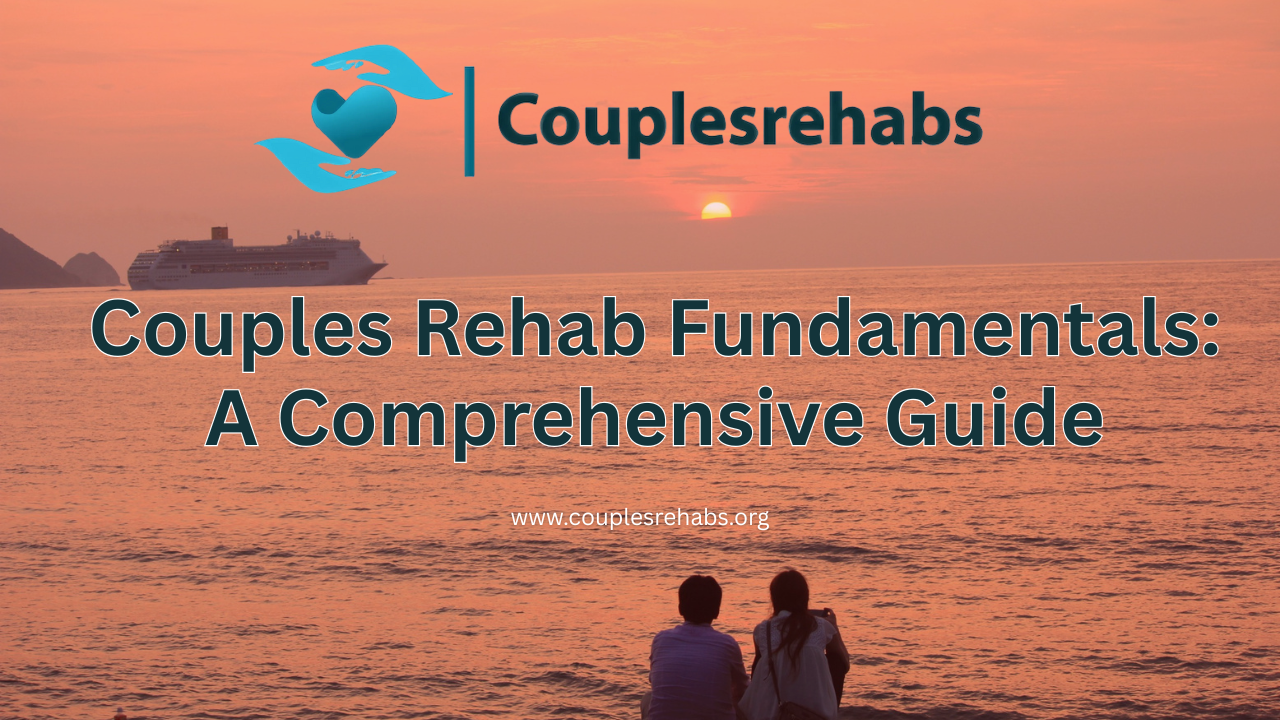Do Couples Rehabs Actually Work?
In the challenging journey toward addiction recovery, couples facing substance abuse issues together often wonder about the most effective treatment path. Should they seek help individually, or is there merit to healing together? At Couples Rehabs in San Diego CA, this question arises frequently from partners hoping to overcome addiction while preserving their relationship. The concept of couples rehabilitation—where partners undergo treatment simultaneously and often in the same facility—represents a specialized approach gaining traction in addiction treatment circles. But the question remains: Do couples rehabs actually work?
This guide explores the effectiveness, benefits, challenges, and considerations surrounding couples rehabilitation programs, with particular focus on the specialized services offered at Couples Rehabs in San Diego CA.
Understanding Couples Rehab: A Dual Approach to Recovery
Couples rehabilitation programs address addiction’s impact on both individuals and their relationship simultaneously. Unlike traditional individual treatment, couples rehab acknowledges that substance abuse rarely occurs in isolation—it affects and is affected by relationship dynamics.
These specialized programs typically combine:
- Individual therapy sessions for each partner
- Joint couples therapy sessions
- Group therapy with other couples
- Family therapy when appropriate
- Education about addiction and healthy relationships
- Skill-building for communication and conflict resolution
The fundamental premise is that treating partners together creates a supportive environment where each person’s recovery reinforces the other’s, while simultaneously healing relationship wounds caused by addiction.
Are Couples Rehabs More Effective Than Individual Rehab?
Research suggests that couples rehabs can offer distinct advantages over individual treatment in many scenarios. A landmark study published in the Journal of Substance Abuse Treatment found that behavioral couples therapy combined with individual treatment showed significantly better outcomes than individual treatment alone.
The effectiveness comparison includes several key factors:
Higher completion rates: Couples who enter treatment together typically show greater program adherence and lower dropout rates. Having a partner alongside provides motivation and accountability that can be missing in individual treatment.
Built-in support system: Partners going through recovery together create an immediate support network that understands the challenges firsthand.
Addressing relationship triggers: Individual rehab may neglect relationship dynamics that contribute to substance use. Couples programs directly address these patterns, reducing relapse triggers.
Simultaneous healing: When both partners need help, concurrent treatment ensures neither is left waiting while harboring active addiction behaviors that could undermine the other’s progress.
However, effectiveness always depends on the specific situation. Individual rehab may be more appropriate when:
- Only one partner has a substance use disorder
- The relationship includes domestic violence or severe dysfunction
- One partner is significantly more motivated than the other
- The relationship itself is likely to end
At Couples Rehabs in San Diego CA, treatment specialists conduct thorough assessments to determine whether couples or individual approaches will better serve each unique situation.

What Are the Success Rates of Couples Addiction Treatment Programs?
Understanding success rates helps couples make informed decisions about treatment options. While precise statistics vary based on multiple factors, research provides encouraging insights about couples rehabilitation effectiveness.
A comprehensive study by the National Institute on Drug Abuse (NIDA) found that couples who participated in Behavioral Couples Therapy (BCT)—a common approach in couples rehab—showed:
- 60% higher abstinence rates than individually-treated counterparts
- 40% reduction in separation and divorce rates
- Significant decreases in domestic violence incidents
- Improved relationship satisfaction scores
Another research review indicated that couples-based interventions consistently outperformed individual treatments across several substance categories, particularly alcohol and opioids.
Couples Rehabs in San Diego CA tracks treatment outcomes and reports that couples completing their comprehensive program demonstrate:
- 65% sustained sobriety at the one-year mark
- 70% reporting significant improvement in relationship satisfaction
- 75% reduction in addiction-related relationship conflicts
Beyond abstinence, quality of life improvements, relationship stability, and reduced healthcare utilization all indicate positive outcomes. The holistic approach at Couples Rehabs in San Diego CA addresses these multiple dimensions of recovery.
How Does Couples Therapy Help With Substance Abuse Recovery?
Couples therapy within rehabilitation programs serves as a powerful catalyst for healing by addressing the intricate relationship between substance use and partnership dynamics.
Breaking Codependency Patterns
Many couples develop unhealthy interdependence around substance use. Couples therapy identifies and disrupts these patterns by:
- Identifying enabling behaviors that unintentionally support continued use
- Establishing healthy boundaries that support recovery
- Developing new relationship rituals not centered around substances
- Building individual identities alongside the partnership identity
Improving Communication Skills
Substance abuse typically damages communication patterns. Couples therapy provides structured practice in:
- Expressing needs without accusation or blame
- Active listening techniques
- Constructive conflict resolution
- Emotional regulation during difficult conversations
Rebuilding Trust
Perhaps the most critical function of couples therapy in recovery is trust restoration. Addiction often leaves a wake of broken promises, deception, and disappointment. Therapeutic interventions help by:
- Creating structured opportunities for accountability
- Guiding the hurt partner through forgiveness processes
- Establishing transparency practices
- Celebrating small wins in trust-building
Couples Rehabs in San Diego CA emphasizes these trust-building exercises as foundational to their treatment approach, recognizing that relationship healing and addiction recovery progress in tandem.
What Are the Benefits of Going to Rehab as a Couple?
Couples who choose to address addiction together often experience distinct advantages that contribute to stronger recovery outcomes and relationship satisfaction.
Unified Recovery Vision
When partners undergo rehabilitation together, they develop shared language, tools, and understanding about recovery. This alignment creates:
- Consistent recovery approaches at home
- Mutual understanding of triggers and challenges
- Shared commitment to lifestyle changes
- United front against external pressures or temptations
Immediate Application of Skills
Couples rehab allows for real-time practice of new relationship and communication skills with professional guidance. Partners can:
- Receive immediate feedback on interaction patterns
- Practice conflict resolution in a supported environment
- Address issues as they arise rather than postponing difficult conversations
- Build confidence in new relationship dynamics before returning home
Comprehensive Family Healing
Addiction affects the entire family system. Couples rehab addresses these broader impacts by:
- Providing frameworks for parenting in recovery
- Healing family rifts caused by addiction
- Creating healthier family communication patterns
- Modeling recovery for children and extended family
At Couples Rehabs in San Diego CA, these benefits are enhanced through comprehensive program design that maintains individual treatment integrity while maximizing relationship healing opportunities.
Are There Specialized Rehab Centers for Couples With Addiction?
While many rehabilitation facilities accept couples, truly specialized couples rehab centers offer distinct advantages through purpose-built programs and environments.
Key Features of Specialized Couples Facilities
Couples Rehabs in San Diego CA exemplifies the specialized approach with several distinguishing characteristics:
Accommodations designed for couples: Unlike facilities that separate partners or make accommodations as exceptions, specialized centers provide living arrangements that respect the relationship while maintaining appropriate therapeutic boundaries.
Staff trained in relationship dynamics: Beyond addiction credentials, therapists at specialized couples facilities have extensive training in relationship counseling, attachment theory, and couples therapy methods.
Integrated treatment scheduling: Programs coordinate individual and couples sessions to complement rather than compete with each other, creating a seamless treatment experience.
Couples-specific group therapy: Shared experiences with other couples facing similar challenges provides validation and diverse perspectives on relationship recovery.
Research-based couples interventions: Specialized facilities employ evidence-based approaches specifically developed for partner recovery, such as:
- Behavioral Couples Therapy (BCT)
- Alcohol Behavioral Couple Therapy (ABCT)
- Community Reinforcement and Family Training (CRAFT)
- Emotionally Focused Therapy adapted for addiction contexts
Finding Specialized Care
Not all facilities advertising couples treatment provide truly specialized care. When evaluating options, couples should inquire about:
- The proportion of couples vs. individual clients
- Specific couples therapy certifications held by staff
- Whether couples stay together or separately
- The balance between individual and relationship-focused treatment
- Success rates specifically for couples
Couples Rehabs in San Diego CA maintains transparency about these factors, helping couples make informed decisions about whether their program aligns with specific needs and preferences.

What Types of Addiction Are Treated in Couples Rehab?
Couples rehabilitation programs address a wide spectrum of substance use disorders and behavioral addictions that impact relationships.
Substance Addictions Commonly Treated
Alcohol: Often characterized by shared drinking patterns or one partner drinking while the other enables. Treatment addresses both the physical dependency and the social rituals built around alcohol consumption.
Opioids: Whether prescription or illicit, opioid addiction treatment for couples addresses the intense physical withdrawal needs alongside the relationship impacts of opioid seeking behaviors.
Stimulants: Cocaine, methamphetamine, and prescription stimulant addictions create distinct challenges, including managing mood swings, rebuilding trust after erratic behavior, and creating new sources of energy and motivation.
Marijuana: Though sometimes minimized, cannabis dependency can significantly impact motivation, emotional availability, and relationship functionality. Couples treatment addresses ambivalence about quitting that often characterizes cannabis use.
Behavioral Addictions
Beyond substances, couples rehab increasingly addresses behavioral addictions that strain relationships:
- Gambling addiction
- Sex and pornography addiction
- Gaming or internet addiction
- Shopping or spending addiction
Dual-Diagnosis Treatment
Many couples present with co-occurring mental health conditions alongside addiction. Couples Rehabs in San Diego CA provides integrated treatment for depression, anxiety disorders, PTSD, bipolar disorder, and personality disorders. This dual-diagnosis approach recognizes that mental health and substance use interact in complex ways within relationship contexts.
How to Find a Couples Rehab That Works?
Finding effective couples rehabilitation requires careful evaluation of programs against several key criteria.
Essential Evaluation Criteria
Evidence-based approach: Look for programs employing research-validated therapies specifically designed for couples recovery, not merely individual treatments delivered to two people simultaneously.
Appropriate credentialing: Verify that the facility holds proper licensing for addiction treatment and employs staff with specialized couples therapy training.
Comprehensive assessment process: Effective programs begin with thorough evaluation of both individual addiction severity and relationship dynamics to create tailored treatment plans.
Balanced attention: The program should dedicate sufficient resources to individual recovery needs while adequately addressing relationship issues.
Aftercare planning: Strong programs develop detailed continuing care plans that support both ongoing sobriety and relationship healing after residential treatment ends.
Questions to Ask Potential Programs
When contacting rehabilitation facilities like Couples Rehabs in San Diego CA, consider asking:
- “What percentage of your clients are couples versus individuals?”
- “How do you handle situations where one partner is ready for discharge before the other?”
- “What specific couples therapy models do your therapists use?”
- “Can you describe your approach to relapse prevention specifically for couples?”
- “What family involvement opportunities exist beyond the primary couple?”
Red Flags in Couples Programs
Exercise caution when programs:
- Cannot articulate specific couples therapy approaches
- Separate partners entirely throughout treatment
- Focus exclusively on addiction without addressing relationship dynamics
- Offer identical treatment plans for every couple
- Lack therapists with specialized couples counseling credentials
Couples Rehabs in San Diego CA works with numerous insurance providers and offers financial guidance to make treatment accessible for committed couples.
Do Couples Rehabs Address Relationship Issues Alongside Addiction?
The most effective couples rehabilitation programs recognize that relationship dysfunction and addiction create a complex, intertwined system requiring simultaneous attention.
Common Relationship Issues Addressed
Trust violations: Beyond the obvious breaches caused by addiction-related behaviors, programs address deeper trust issues that may have preceded or contributed to substance use.
Communication breakdown: Couples learn to replace addiction-influenced communication patterns (avoidance, dishonesty, aggression) with transparent, compassionate exchanges.
Intimacy challenges: Physical and emotional intimacy often suffer during active addiction. Treatment helps couples reconnect intimately without substances.
Power imbalances: Addiction frequently distorts relationship power dynamics. Therapy works to establish healthier, more equitable interaction patterns.
Grief and loss processing: Partners often need to grieve various losses—from financial stability to shared dreams—as part of healing.
Therapeutic Approaches for Relationship Healing
Couples Rehabs in San Diego CA employs several evidence-based relationship therapies within their addiction treatment framework:
Emotionally Focused Therapy (EFT): Helps couples identify attachment needs and emotional patterns that drive conflict and potentially trigger substance use.
The Gottman Method: Provides practical tools for managing conflict, building friendship, and creating shared meaning that supports recovery.
Narrative Therapy: Allows couples to externalize addiction as a separate entity from either partner, reducing blame while increasing agency.
What Are the Challenges of Couples Going Through Rehab Together?
While couples rehabilitation offers significant benefits, it also presents unique challenges that require careful management by both treatment providers and the couples themselves.
Common Challenges and Solutions
Differing recovery paces: Partners rarely progress through recovery stages simultaneously. This can create frustration or resentment if not properly addressed.
Solution: Couples Rehabs in San Diego CA implements individualized treatment plans within the couples framework, allowing each partner to progress at their appropriate pace while maintaining relationship focus.
Codependency reinforcement: Without proper intervention, couples may inadvertently continue unhealthy dependency patterns even in recovery.
Solution: Treatment includes specific codependency education and boundary-setting exercises to foster healthy interdependence rather than enabling patterns.
Relationship-centered relapse triggers: For some, relationship conflicts directly trigger substance use urges. Early recovery relationships remain vulnerable to these established patterns.
Solution: Couples learn to identify relationship triggers and develop specific intervention plans for high-risk interaction patterns.
Privacy and disclosure tensions: Partners often differ in their comfort with sharing personal details in joint sessions, creating potential conflicts.
Solution: Therapists establish clear frameworks for balancing individual privacy with relationship transparency needs.
Can Couples Rehab Help Prevent Relapse in Both Partners?
Relapse prevention represents a critical focus area in addiction treatment. For couples, this challenge takes on additional dimensions as each partner’s recovery influences the other’s stability.
Couples-Specific Relapse Prevention Strategies
Couples Rehabs in San Diego CA implements several specialized approaches to reduce relapse risk:
Recovery contracts: Formalized agreements outline each partner’s commitments to sobriety and specific actions to take if either experiences cravings or early relapse warning signs.
Communication protocols: Couples develop explicit communication strategies for discussing cravings, triggers, or concerns without triggering defensive reactions.
Environmental restructuring: Treatment includes joint planning to remove household triggers and create recovery-supportive home environments.
Shared accountability practices: Partners establish mutually agreed methods for maintaining transparency without creating surveillance dynamics.
The Power of Mutual Support
Research consistently shows that strong social support significantly improves long-term recovery outcomes. For couples in recovery together, this built-in support system offers unique advantages:
- Immediate recognition of subtle behavioral changes that might indicate relapse risk
- Practical assistance during difficult moments
- Shared commitment to lifestyle changes that support sobriety
- Mutual reinforcement of recovery principles and practices
However, this support functions optimally only when both partners maintain their individual recovery practices alongside relationship work.
Conclusion: Making an Informed Decision About Couples Rehab
The evidence strongly suggests that couples rehabs can work effectively when programs provide appropriate integration of individual addiction treatment with relationship therapy. For many couples, this approach offers the most comprehensive path to both personal recovery and relationship healing.
When considering whether couples rehabilitation is right for your situation, remember:
- Each relationship brings unique dynamics requiring personalized treatment
- The most effective programs provide balanced attention to both individual needs and relationship factors
- Success depends partly on both partners’ willingness to engage authentically
- Specialized facilities like Couples Rehabs in San Diego CA offer advantages through purpose-built programs
The journey through addiction recovery challenges even the strongest relationships, but with proper support, many couples emerge with renewed connection and mutual commitment to healthy, substance-free lives together.
If you’re considering treatment options for yourself and your partner, reaching out to addiction specialists who understand relationship dynamics represents an important first step. With thorough assessment and proper program selection, couples rehabilitation can provide the comprehensive support needed for lasting recovery.
Frequently Asked Questions About Couples Rehab
1. How long does couples rehab typically last?
The duration of couples rehabilitation programs varies based on several factors, including addiction severity, substances involved, and relationship complexity. At Couples Rehabs in San Diego CA, programs typically range from 30 to 90 days for residential treatment, followed by outpatient services.
2. Can we participate if only one partner has an addiction?
Yes, many couples rehabilitation programs accommodate situations where only one partner has a diagnosed substance use disorder. The non-addicted partner participates as a support person while also engaging in relationship therapy.
3. Will insurance cover couples rehab?
Insurance coverage varies significantly by provider and policy. Most insurance plans cover addiction treatment when medically necessary, but coverage for the relationship therapy components may differ. Couples Rehabs in San Diego CA works with numerous insurance providers and can help verify benefits.
4. What happens if one partner relapses during treatment?
Relapse during treatment is handled as a clinical event requiring intervention rather than program failure. The treatment team adjusts the affected partner’s treatment intensity while continuing to support the couple relationship.
5. Can same-sex couples participate in couples rehab?
Absolutely. Quality couples rehabilitation programs provide inclusive treatment that respects all relationship structures. Couples Rehabs in San Diego CA welcomes couples of all sexual orientations and gender identities.
6. What happens if we decide to separate during treatment?
While most couples complete treatment together, relationship dissolution sometimes occurs as partners gain clarity about their needs. If separation becomes the healthiest option, treatment programs pivot to support both individuals through this transition while maintaining focus on recovery goals.
7. How are children accommodated during couples rehab?
Most residential couples programs don’t accommodate children on-site, though some facilities offer family visitation options. Couples Rehabs in San Diego CA provides family therapy sessions that can include children when appropriate and works with families to develop interim childcare plans.
8. Is couples rehab appropriate for relationships with domestic violence history?
Current domestic violence contraindicates couples treatment until safety is established. Historic violence requires careful assessment. Many facilities, including Couples Rehabs in San Diego CA, conduct thorough violence screenings before admission.
9. What aftercare services are available for couples after rehab?
Comprehensive aftercare for couples typically includes:
- Continued couples therapy sessions
- Individual counseling for each partner
- Couples recovery support groups
- Family reintegration assistance
- Relapse prevention planning
10. How do we maintain privacy about our treatment?
Treatment confidentiality is protected by federal regulations that specifically cover substance use disorder treatment. Reputable facilities like Couples Rehabs in San Diego CA maintain strict privacy protocols, allowing couples to control what information is shared with employers, family members, or others.



Recent Comments